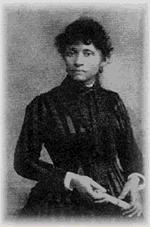

|
In November We Remember: The IWW & the Commemoration of Haymarket No labor organization in the US. has more profoundly or more consistently identified itself with the traditions of Haymarket than the Industrial Workers of the World. The active participation of several veterans of 1880s Chicago anarchism in the IWWs founding convention in 1905 helped implant something of the Haymarket spirit in the new union right from the start. An early IWW historian noted that Lucy Parsons' presence at the first convention was "a constant reminder to the delegates of the Haymarket tragedy, which had ended the first great drive for a revolutionary unionism, in this same city of Chicago, nearly a generation before."' Lucy Parsons' impact on labor radicals in general and Wobblies in particular was in fact immense. IWW organizer Art Boose acknowledged that he might have turned out to be a "scissorbill " had he not encountered Lucy, and many others surely could have said the same. In the IWWs historical books and pamphlets-such as the Historical Catechism of American Unionism, The Blood-Stained Trail and Nuroiso, Oppi ja 1"yo/Youth, Learning and Labor (a bilingual FinnishEnglish textbook used in children's classes at the IWW Work People's College in Duluth) –Haymarket figured prominently as a milestone in the struggle for workingc1ass emancipation in the US. The One Big Union's feeling of kinship for the Haymarket anarchists became yet more poignant when, in the course of their own "conspiracy trial" during World War I, Ralph Chaplin and others were locked up in the very cells of Cook County Jail that had once confined Parsons, Spies, Fischer, Engel, Fielden, Neebe and Schwab. Especially interesting is the way in which the Wobblies incorporated the Haymarket martyrs into their own extensive proletarian martyrology-Joe Hill, the Everett Massacre, Wesley Everest and others-as vividly portrayed in the text reprinted here by the wellr emembered Charles Velsek, an old-time Rob who was one of the mainstays of the Chicago Branch till his death in 1979. As Fellow Worker Velsek noted, IWWB ranches and Locals held November meetings to commemorate Haymarket as well as other "victims of class war. " These nonsectarian gatherings generally featured speakers representing a broad spectrum of radical workers' organizations. Lucy Parsons and Nina Spies often attended, along with Irving Abrams of the Pioneer Aid and Support Association, Boris Yelensky and Maximiliano Olay of the anarchist Free Society Group, John Kerucher of the Proletarian Part 4, Hugo Oehler of the Revolutionary Workers' League, as well as representatives of the Socialist Party, the Communist League of America and other groups. Such memorial meetings-together with the songs, poems, articles and cartoons on the "In November We Remember" theme, which to this day are a feature in November issues of the Industrial Worker-helped, as one Wobbly writer put it, "to give a sense of continuity to the struggle of the workers, not only from year to year but from generation to generation." Source: |